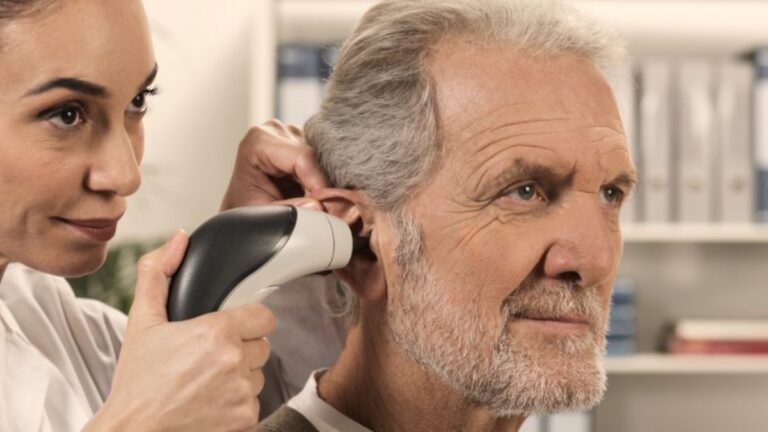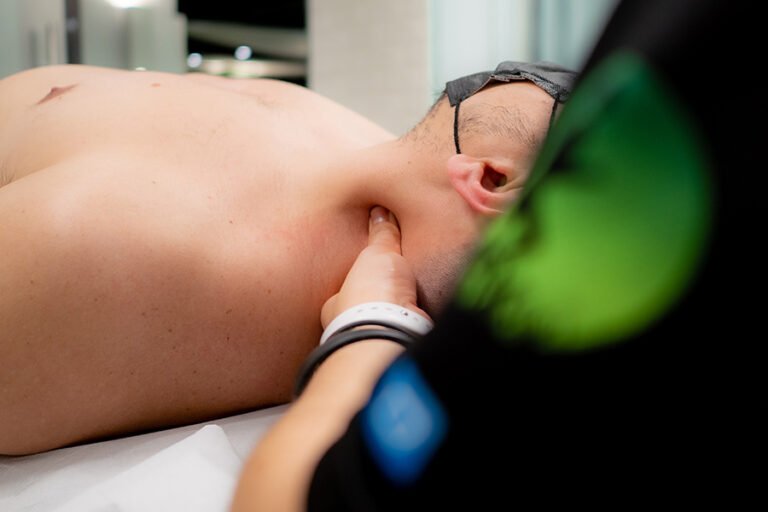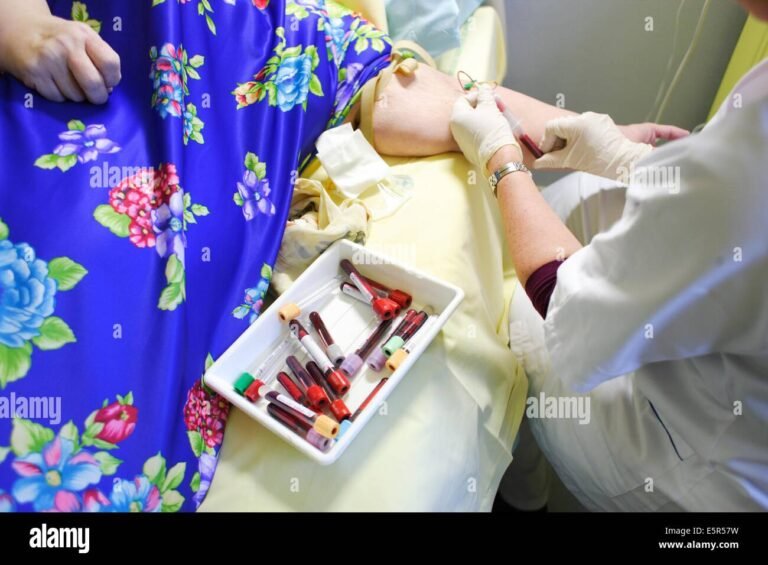should i be worried about a positive cologuard test
✅Yes, a positive Cologuard test can be concerning. It may indicate potential colorectal cancer or precancerous polyps. Consult your doctor ASAP!
A positive Cologuard test can be a cause for concern, but it is important to understand what it means and the next steps you should take. The Cologuard test is a non-invasive screening tool for colorectal cancer that detects altered DNA and/or blood in stool samples. A positive result does not necessarily mean you have colorectal cancer, but it does indicate that further diagnostic tests are needed to determine the cause of the positive result.
Understanding a positive Cologuard test result is crucial for your health. In this article, we will delve into what a positive Cologuard test means, the statistics behind the test’s accuracy, and the recommended follow-up procedures. We will also provide insights into how to prepare for these follow-up tests and what you can expect during the process.
What Does a Positive Cologuard Test Mean?
The Cologuard test screens for DNA markers and blood that could indicate the presence of colorectal cancer or advanced adenomas (pre-cancerous polyps). A positive result means that these markers or blood have been detected in your stool sample. However, it is important to note that a positive result does not confirm the presence of cancer. According to the American Cancer Society, the Cologuard test has a sensitivity of 92% for detecting colorectal cancer and a specificity of 87% for ruling out those who do not have the disease. This means that while the test is quite accurate, there is still a chance of false positives.
Next Steps After a Positive Cologuard Test
After receiving a positive result, the recommended next step is usually a colonoscopy. A colonoscopy is a more definitive diagnostic tool that allows doctors to visually inspect the colon and rectum for abnormalities. During a colonoscopy, if polyps or other suspicious areas are found, they can be biopsied or removed for further analysis. This procedure helps in determining whether the positive Cologuard test was due to cancer, pre-cancerous polyps, or another condition such as hemorrhoids or inflammatory bowel disease (IBD).
Preparing for a Colonoscopy
Preparation for a colonoscopy involves several steps to ensure that your colon is clear of any stool, which allows for a thorough examination. These steps typically include:
- Dietary Restrictions: You may need to follow a clear liquid diet for one to three days before the procedure.
- Laxatives: You will likely be instructed to take a strong laxative or an enema the night before the colonoscopy to clean out your colon.
- Medication Adjustments: You may need to adjust or temporarily stop certain medications, especially blood thinners, as advised by your doctor.
What to Expect During a Colonoscopy
The colonoscopy procedure itself is relatively quick, usually taking about 30 to 60 minutes. You will be sedated to ensure comfort during the examination. The doctor will insert a long, flexible tube with a camera (colonoscope) into your rectum to inspect the colon. If any polyps or suspicious areas are found, they can be removed or biopsied. Most people can return to their normal activities the next day, although you may need to arrange for someone to drive you home after the procedure due to the sedation.
Interpreting the Results
The findings from your colonoscopy will guide the next steps in your care. If polyps are removed, they will be sent to a lab for analysis to determine if they are benign, pre-cancerous, or cancerous. Based on the results, your doctor will recommend a follow-up plan, which could include more frequent screenings or additional treatments if necessary.
In summary, while a positive Cologuard test can be alarming, it is not a definitive diagnosis of colorectal cancer. It is a signal that further investigation is needed to understand the cause of the positive result. By following up with a colonoscopy and working closely with your healthcare provider, you can ensure that any potential issues are identified and treated early, improving your overall health outcomes.
Understanding the accuracy and limitations of Cologuard tests
When it comes to Cologuard tests, understanding their accuracy and limitations is crucial for making informed decisions about your health. These tests are designed to detect signs of colorectal cancer and precancerous polyps by analyzing your stool sample for specific DNA markers and blood that may indicate the presence of abnormalities.
It’s essential to be aware that while Cologuard tests are highly sensitive, they are not infallible. False positives and false negatives can occur, leading to unnecessary anxiety or potentially missing a serious health issue. Therefore, it’s important to interpret the results of a Cologuard test in consultation with your healthcare provider.
The Benefits of Cologuard Tests
Cologuard tests offer several advantages:
- Non-invasive: Unlike traditional colonoscopies, Cologuard tests require only a stool sample, making them a more comfortable option for many individuals.
- Convenience: Cologuard tests can be done at home, eliminating the need for a hospital visit or sedation.
- Early detection: By detecting abnormalities in the early stages, Cologuard tests can help prevent the progression of colorectal cancer.
Interpreting Cologuard Test Results
It’s important to understand that a positive Cologuard test does not necessarily mean you have colorectal cancer. It indicates the presence of abnormal DNA or blood in your stool, which may warrant further investigation through a diagnostic colonoscopy.
Conversely, a negative Cologuard test does not guarantee you are free of colorectal cancer or polyps. Regular screening is still recommended to monitor your colorectal health effectively.
Remember, Cologuard tests are just one tool in the arsenal of colorectal cancer screening. Consult with your healthcare provider to determine the most suitable screening method based on your individual risk factors and medical history.
Next steps after receiving a positive Cologuard result
After receiving a positive Cologuard result, it is natural to feel concerned about what this means for your health. Understanding the next steps to take is crucial in managing your health effectively.
Cologuard is a noninvasive screening test used to detect colorectal cancer and precancerous polyps. A positive result indicates the presence of abnormal cells or blood in the stool, which may suggest a higher risk of colorectal cancer.
Immediate actions to consider:
- Schedule a follow-up colonoscopy: A positive Cologuard result does not definitively mean you have colorectal cancer, but it does require further evaluation with a colonoscopy to confirm the findings.
- Consult with your healthcare provider: Discuss the results of your Cologuard test with your doctor to determine the best course of action and address any concerns you may have.
- Follow any additional testing recommendations: Depending on the results of the colonoscopy, additional testing or surveillance may be recommended by your healthcare provider.
It is essential to act promptly upon receiving a positive Cologuard result to ensure timely diagnosis and appropriate treatment if necessary. Early detection of colorectal cancer significantly improves treatment outcomes and survival rates.
Key points to remember:
- A positive Cologuard result does not equate to a definitive diagnosis of colorectal cancer.
- Follow-up testing, such as a colonoscopy, is necessary to confirm the findings and determine the appropriate next steps.
- Timely intervention is crucial in managing colorectal health and improving outcomes.
Remember, a positive Cologuard test result is a proactive step towards early detection and prevention of colorectal cancer. By staying informed and taking the necessary actions, you are prioritizing your health and well-being.
Frequently Asked Questions
1. What does a positive Cologuard test result mean?
A positive Cologuard test result means that blood or DNA changes were detected in your stool sample, which could indicate the presence of colorectal cancer or precancerous polyps.
2. Is a positive Cologuard test always indicative of cancer?
No, a positive Cologuard test does not always mean you have cancer. It is important to follow up with a healthcare provider for further testing to confirm the diagnosis.
3. What are the next steps after receiving a positive Cologuard test result?
After a positive Cologuard test result, your healthcare provider may recommend a colonoscopy to further evaluate and potentially remove any precancerous polyps or confirm the presence of cancer.
4. Are there any factors that can cause a false positive Cologuard test result?
Factors such as certain foods, medications, or bleeding from conditions other than colorectal cancer can potentially cause a false positive Cologuard test result.
5. How often should Cologuard tests be done for colorectal cancer screening?
Colorectal cancer screening guidelines recommend that individuals with an average risk of colorectal cancer should be screened with a Cologuard test every three years.
6. Will insurance cover the cost of a Cologuard test?
Many insurance plans, including Medicare, cover the cost of Cologuard tests for eligible individuals. It is recommended to check with your insurance provider for specific coverage details.
- Colorectal cancer is the third most common cancer diagnosed in both men and women in the United States.
- Regular colorectal cancer screening can help detect cancer early when treatment is most effective.
- Cologuard is a non-invasive at-home stool test that can detect blood and DNA changes in the stool, which may indicate colorectal cancer.
- Individuals with a family history of colorectal cancer or certain genetic conditions may need to start screening earlier or undergo more frequent testing.
- Early detection through screening can significantly increase the chances of successful treatment and survival for colorectal cancer patients.
We hope these FAQs have been helpful in addressing your concerns about a positive Cologuard test. If you have any more questions or would like to share your experience, please leave a comment below. Don’t forget to check out our other articles on colorectal cancer screening and prevention!







